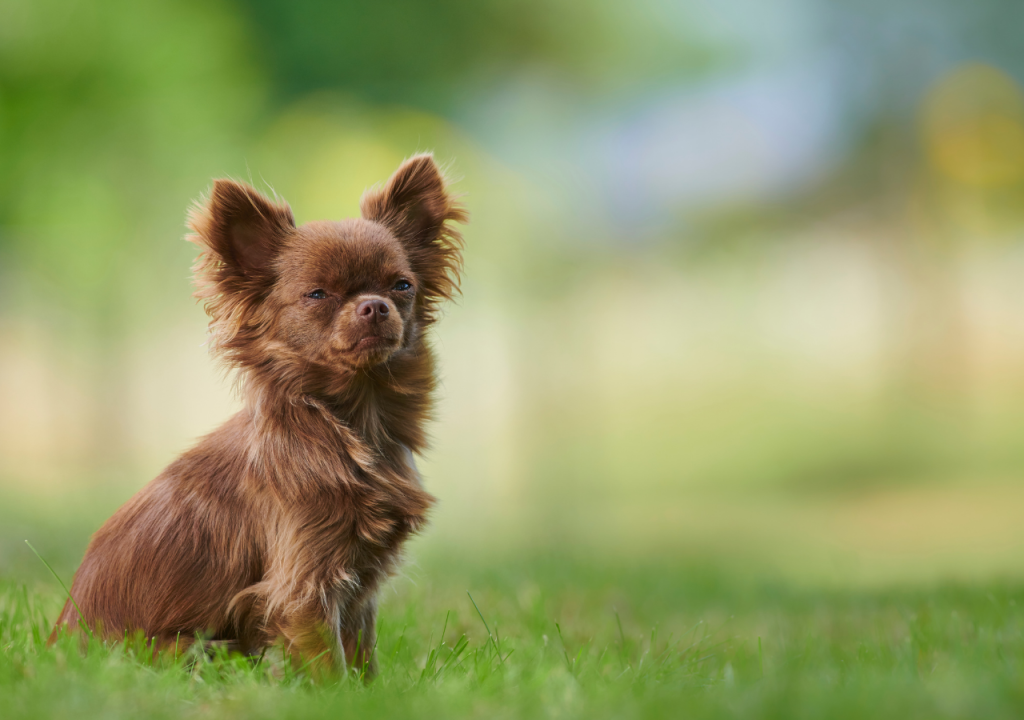If you own a Chihuahua, then you know just how amazing they are. Their big personalities and loyalty is the best. However, with their small size comes some special health challenges, especially when it comes to breathing. Knowing what to look out for can be the key to keeping your furry friend healthy and happy. In this post, we’ll go over the common causes of Chihuahua breathing problems, how to recognize the signs and what you can do to fix and prevent them.

Chihuahua Breathing Problems
Why Chihuahuas Are Susceptible to Breathing Issues
Chis are not a brachycephalic breed, but still can have breathing issues due to their size and anatomy. A tiny trachea and long soft palate can block airflow and make breathing hard. And because of their small size, they are more prone to respiratory issues from environmental factors, allergies, and infections.
Common Breathing Problems in Chihuahuas
- Tracheal Collapse: When the trachea (windpipe) becomes weak and collapses, making it hard to breathe. More common in small breeds like Chihuahuas.
- Reverse Sneezing: A common problem in Chihuahuas and other small dogs where the dog makes a snorting sound due to an irritation in the nasal passages.
- Allergies: Just like humans, Chihuahuas can have allergies that affect their respiratory system causing sneezing, coughing and breathing difficulties.
How to Recognize Breathing Problems
Breathing problems in Chihuahuas can show up in many ways and recognizing the signs early can be key to their health. Here are the main signs to look out for:
1. Labored Breathing
- Difficulty breathing, often with increased effort to inhale or exhale.
- Indicators: Rapid shallow breaths or visibly struggling to breathe. Your Chihuahua may exhibit flaring nostrils and exaggerated chest or abdominal movement.
2. Coughing
- Persistent or frequent coughing which can vary in sound and intensity.
- Indicators: Dry hacking cough or moist productive cough. Coughing may be more pronounced at night or after physical activity.
3. Wheezing
- A high-pitched whistling sound when your Chihuahua breathes.
- Indicators: Wheezing is more noticeable during exhalation and can be accompanied by labored breathing or coughing.
4. Gagging
- Repeated throat clearing, often mistaken for vomiting.
- Indicators: Your Chihuahua may make retching sounds or motions as if trying to get something out of their throat.
5. Snorting
- Sudden rapid snorting sounds, often associated with reverse sneezing.
- Indicators: Episodes of rapid snorting where your Chihuahua extends their neck and gasps for air, often alarming but usually harmless.
6. Blue Gums or Tongue
- Blue tint to the gums or tongue means no oxygen.
- Check your Chihuahua’s mouth if you suspect severe breathing issues.
7. Exercise Intolerance
- Difficulty or refusal to exercise.
- Your Chihuahua may tire quickly, avoid play or be labored breathing during or after exercise.
8. Nasal Discharge
- Discharge from the nose, clear, cloudy or colored.
- Persistent or recurring nasal discharge, may be accompanied by sneezing or coughing.
9. Open-Mouth Breathing
- Breathing through the mouth instead of the nose (not normal for dogs).
- Indicators: Your Chihuahua may breathe with their mouth open, often during respiratory distress.

10. Sleep Disturbances
- Difficulty sleeping due to breathing issues.
- Indicators: Frequent waking, restless sleep or loud snoring means blocked airways.
When to Seek Help
If you see any of these symptoms in your Chihuahua, get to your vet ASAP. Some breathing issues are minor, others are life-threatening if left untreated. Your vet will do a full exam and may recommend X-rays, bronchoscopy or a CT scan to find out what’s going on.
Managing and Treating Breathing Problems
Home Care and Management
While vet care is necessary for severe breathing issues, there are some things you can do at home to manage your Chihuahua’s condition:
- Keep them at a Healthy Weight: Overweight Chihuahuas are more prone to breathing problems. Keep your dog at a healthy weight with a balanced diet and exercise.
- Use a Harness Instead of a Collar: Collars can put pressure on the trachea and make breathing worse. Use a harness that distributes the pressure more evenly across the chest.
- Avoid Extreme Temperatures: Chihuahuas are sensitive to heat and cold. Keep your dog in a comfortable environment to prevent respiratory distress.
- Minimize Allergens: Identify and minimize exposure to allergens like pollen, dust and cigarette smoke.
- Monitor Exercise: Avoid strenuous exercise, especially in hot weather. Short, frequent walks are better than long, exhausting ones.
- Humidify the Air: Using a humidifier can help keep your Chihuahua’s airways moist and reduce irritation.
Medical Treatments
Your vet may recommend one or more of the following:
- Medications: Anti-inflammatory, bronchodilators or cough suppressants to manage symptoms.
- Surgery: In severe cases, surgery may be necessary to correct anatomical abnormalities like an elongated soft palate or stenotic nares.
- Weight Management Program: If your Chihuahua is overweight, your vet may put them on a weight loss program to reduce the strain on the respiratory system.
- Allergy Treatments: Identify and manage allergies through medications or dietary changes to alleviate respiratory symptoms.

Chihuahua Breathing Problems
Breeding
Responsible breeding is key to reducing Chihuahua breathing problems. When choosing a breeder look for one who prioritizes health and genetic diversity over looks. Breeders should screen for common respiratory issues and not breed dogs with known problems.
Early Socialization and Training
Socialization and training from an early age can help your Chihuahua adjust to different environments and reduce stress related breathing issues. Train your dog to remain calm in stressful situations to prevent labored breathing and reverse sneezing.
Vet Visits
Regular vet visits are important to monitor your Chihuahua’s health and catch any issues early. Regular exams, dental cleanings and vaccinations can help overall health and prevent respiratory infections.
Healthy Living
Living healthy for your Chihuahua can go a long way in preventing breathing problems. This means a balanced diet, regular exercise and mental stimulation. Keep your dog mentally and physically active to strengthen their respiratory system and overall health.
Dealing With Chihuahua Breathing Problems: Wrapping Up
Chihuahua breathing problems can be tough but with the right knowledge and care you can help your furry friend live a healthy happy life. Knowing the causes, recognizing the signs and taking preventative measures are the key to managing your Chihuahua’s respiratory health. Always consult with your vet for professional advice and treatment options for your dog.
By being informed and aware you can ensure your Chihuahua has many happy breathy moments by your side. Remember a little extra care goes a long way in keeping those tiny lungs running smoothly. Whether it’s through regular vet visits, healthy living or just being mindful of their environment your efforts will make a big difference to your Chihuahua’s life.

